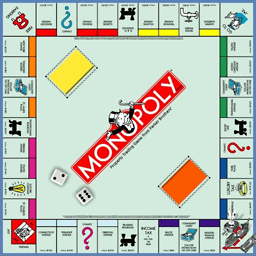In its never-ending quest to tax everything it can think of, the IRS has taxed income, profits, death, and marriage. Attempts to tax email have stalled, but only because even a 100% tax on something free is still nothing.
Now the virtual taxman cometh, and gamers are wondering how (not if) the IRS will tax online economies. Sure, they already tax profits when you sell virtual property (gold, weapons, etc.) for real dollars, but there’s a widespread expectation that the IRS will attempt to collect taxes on virtual holdings.
For Second Lifers and World of Warcrafters who live in the US, this could be interesting – and expensive. Once source pegs WoW gold pieces as worth 18¢ in US currency. As Clive Thompson notes, “the profits currently locked up inside these worlds are becoming big enough – hundreds of millions at least, and maybe billions – that they are a juicy target for the IRS.”
Whatever the tax rate, it will hamper US players and give players elsewhere in the world an economic advantage in virtual reality.
Beyond Online Gaming
 But that pales in comparison to the IRS’ latest proposal – taxing game play in the real world. Play Monopoly™ and owe real taxes every time you pass Go and collect $200. Owe taxes for all the rent you collect, after depreciating the cost of property and improvements.
But that pales in comparison to the IRS’ latest proposal – taxing game play in the real world. Play Monopoly™ and owe real taxes every time you pass Go and collect $200. Owe taxes for all the rent you collect, after depreciating the cost of property and improvements.
Or play the home version of Wheel of Fortune, Jeopardy, or any other game – and owe taxes to the IRS.
Gaming’s Boston Tea Party
We have to stop the insanity, and I know just the way to do it.
Monopoly players, send your tax payments in Monopoly money. Warcrafters, don’t pay your taxes in US funds; instead, send a check made out for whatever number of gold pieces you owe.
Friends, this is nothing less than taxation without representation. Until the IRS includes the new tax rules with every copy of Monopoly sold and has an online presence in Second Life and World of Warcraft, you’ll want to somehow escrow your funds until the Supreme Court rules on the legality of taxing virtual profits.
Skirting the IRS
The next step is to create an online representative democracy in each virtual world with the authority to tax income and profits. We should then be able to argue that these profits are earned by virtual citizens of specific online worlds who are thus subject only to the rules of those virtual realities and not to the IRS or any other portion of the US government.
You have nothing to lose but your virtual wealth!
– Anne Onymus


